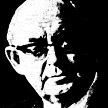As the daughter of the late Advocate Isie Maisels, I read with interest David Saks’ article of 20 April (‘Isie Maisels, the SAJBD, BDS & the ConCourt’) and the response by Roshan Dadoo (‘Isie Maisels, BDS and the SAJBD: A reply’, 30 April).
There are two especially problematic aspects of Dadoo’s article to which I wish to respond. The first is her belief that it is legitimate to call for those who serve on Jewish communal bodies that support Israel to be excluded from serving on the South African judiciary. The second is her attempt at irony: that had my father been alive today he would have supported the radical anti-Israel agenda espoused by herself and her fellow travellers in the BDS movement.
From the outset let me say that my father, as someone who was unswerving in his commitment to the democratic and human rights of everybody, would have been appalled by the notion that those who serve on Jewish organisations should be denied their right to be appointed to public office.
In addition to being very obviously discriminatory, this contravenes the fundamental democratic rights of all citizens to freedom of belief and association that Isie always fought to uphold. He would thus have been disappointed, to say the least, that rather than dissociating itself from this undemocratic and racist view, the Judicial Services Commission (JSC) effectively endorsed it by the manner in which its commissioners treated two Jewish candidates during their interviews for judicial positions.
As was quite apparent from the kind of questions posed, any association with the SA Jewish Board of Deputies, the elected, representatives of the Jewish community as a whole, is considered to be problematic in terms of being elevated to the bench.
In adopting this stance, the JSC was behaving exactly like the National Party during the apartheid years, which likewise appointed justices on the basis of their political leanings. This was part of the reason why Isie Maisels, despite the across-the-board esteem in which he was held by his colleagues, was never appointed as a judge by the apartheid regime.
(I say it was a part, because ultimately Isie would never have accepted appointment to any Apartheid Bench.) How ironic, therefore, that were Roshan Dadoo et al to have their way, he would likewise be overlooked were he alive today, 27 years after the demise of apartheid!
In terms of his attitude towards Israel my father, while he was by no means an uncritical supporter of each and every policy adopted by the various Israeli governments of the day, was a proud, devoted Zionist who never wavered in his support of the right of Israel to exist in peace and security. Among the senior communal leadership positions held, he served as chairman of the SA Zionist Federation and was the first South African to be appointed as a governor of the Jewish Agency for Israel.
His wife, my late mother Muriel, also dedicated herself to working for Israel, serving as National President of the local Women’s Zionist Organisation. I should add that Isie was very clear about his support of the Zionist cause: he was adamant that Jews should have their own homeland, but at the same time never confused this with unquestioning support of successive Israeli governments and their policies.
My father would have had no truck with the BDS movement, whose explicit mission is to delegitimise, isolate and ultimately bring about the eradication of the Jewish state. He would certainly have regarded Dadoo’s assertion that Israel is “a settler colonial state founded in the forcible displacement of the Palestinians” as an outrageous distortion of history, and would have rejected it with the contempt it deserves.
As someone who knew very well what apartheid was all about, having fought against it in the highest courts in the land, he would likewise have dismissed as malevolent nonsense the charge that Israel is an apartheid state.
When I think of my father, I remember a man who was fearless in speaking out for what he believed, coupled with the highest principles – a lethal combination for those who opposed him! When my siblings and I were growing up, he always taught us to speak up for those less fortunate, and to speak up for principles in which one believed, whatever the circumstances. Equally importantly, he taught us to do this in such a way that one did not personally offend those with whom one disagreed.
It would have saddened him very much to see how, of late, these values have come to be so overtly flouted in the country he loved so much and which to the end of his long life, did his utmost to serve.
Helen Maisels

